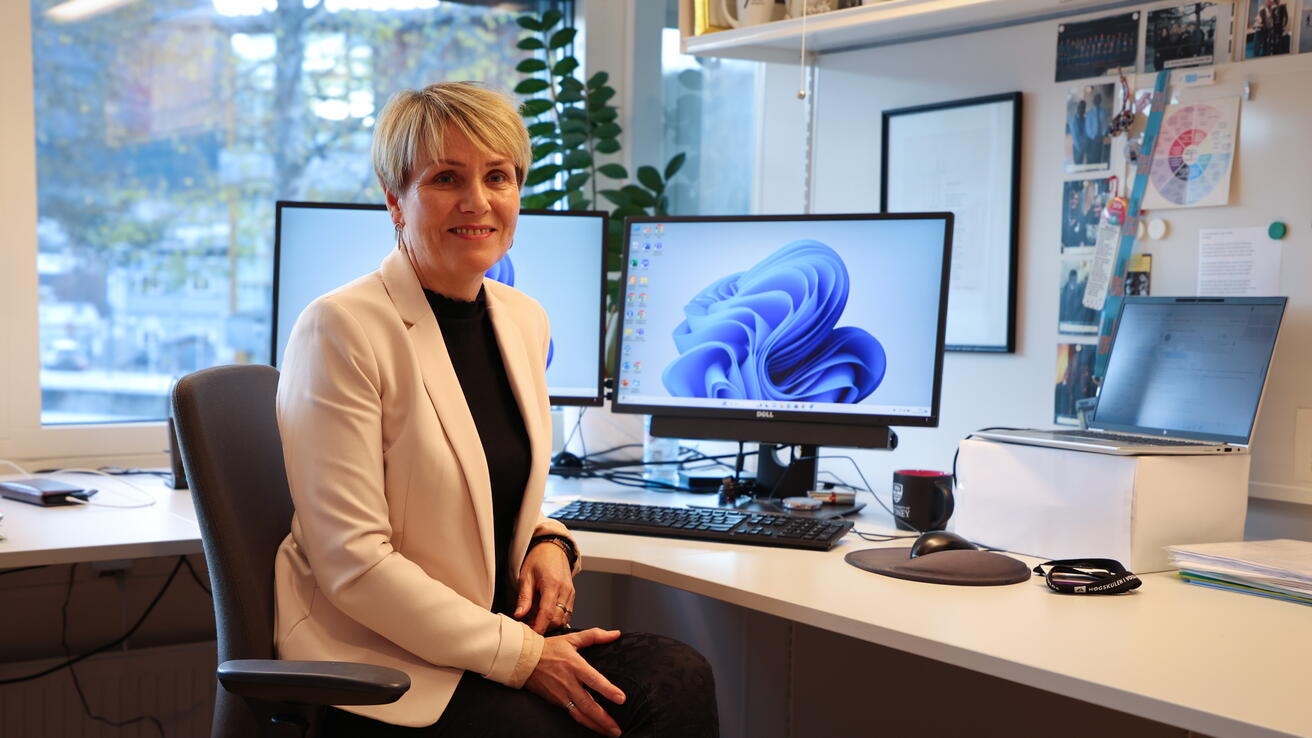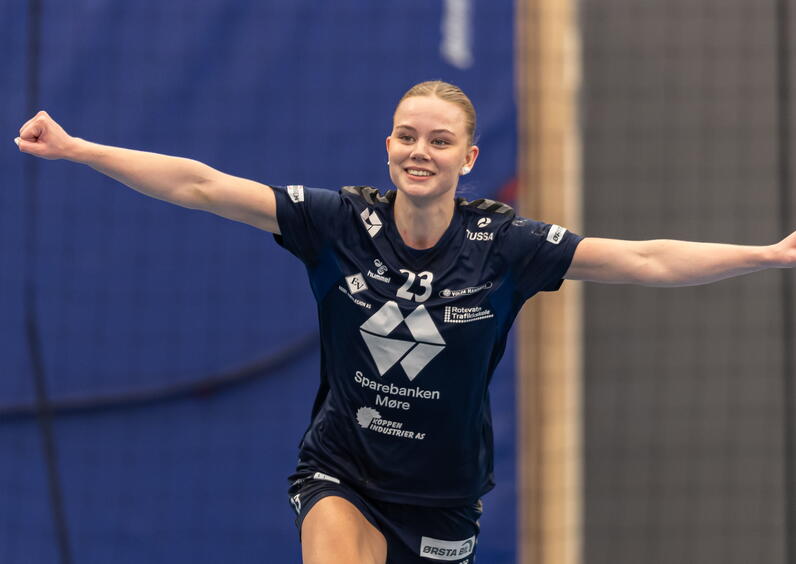VUC expert recruited to prestigious Finnish project
Siv M. Gamlem, Professor in Education, has several irons in the fire internationally. Now the VUC profile has been invited as an expert in a large Finnish research project that has just "hit the jackpot" in terms of funding.

Professor Siv M. Gamlem at Volda University College (VUC) looks forward to contributing expertise to the significant research project Education for the Future EDUCA Flagship. Photo: VUC / Steinarr Sommerset.
Siv M. Gamlem, Professor in Education, has several irons in the fire internationally. Now the VUC profile has been invited as an expert in a large Finnish research project that has just "hit the jackpot" in terms of funding.
The Research Council of Finland recently selected four research projects as "Finnish flagships". This prestigious status entails tens of millions of euros in government funding over two four-year periods – a real jackpot at a time when obtaining research funds is challenging.
One of the projects that successfully navigated the competitive selection process is Education for the Future (EDUCA). Through this project, top researchers from multiple countries will delve deep into the numerous challenges facing the education system. Included in the specialized expertise the project draws on, is a researcher from Volda University College (VUC): Siv M. Gamlem, Professor in Education and Pedagogy.
Significant academic gain VUC and Norwegian classrooms
– I am very pleased to have been invited to participate in this research project, because they have assembled a highly skilled group of experts, says Professor Gamlem.
She was invited to the EDUCA project as an expert in assessment, feedback for learning, assessment as a learning process, and the use of Artificial Intelligence (AI) in educational assessment. When VUC contributes to research on this scale, Professor Gamlem believes it can have important ripple effects.
– It's a win-win! We get to build networks, can initiate more joint projects internationally, create new spaces for exchange, and develop crucial knowledge through collaboration. The research in this project is also useful and relevant for Norwegian conditions.
The Finnish school system: high status, but challenges
For a long time, the Finnish school system has been the Nordic showpiece, known for research-based teaching and a high status for the teaching profession. However, even in the Finnish school system, things are changing.
– In Finland, we are now witnessing a shift in how teachers thrive and function in their profession. The stress levels are increasing, which we know is contributing to a decline in the quality of teaching. These trends and other challenges we will investigate in the research project are both relevant topics for the Norwegian school system and internationally transferable, states Professor Gamlem.
The researchers also observe concerning trends in how children experience school.
– Pupils face different and more challenges now than before. When we have first graders experiencing school refusal, it is worrisome, and the same applies to school dropout rates and the level of conflict on various levels: Something is out of balance. Children are our future, and it is important to take seriously what is happening. Our research project will examine what we are dealing with and what we are moving towards concerning Artificial Intelligence and much more—and we must remember the human aspect in all of this, emphasizes Professor Gamlem.
A new chapter in a good collaboration
The EDUCA project is led by Professor Marja-Kristiina Lerkkanen (University of Jyväskylä), with whom Professor Gamlem has collaborated for seven years. Among other things, they jointly initiated the network Systematic observation in educational research with Professor Sigrun Ertesvåg (University of Stavanger).
– We have long shared a common interest in observing and enhancing the quality of education so that both teachers and students can function as effectively as possible, says Professor Gamlem.
The Finnish flagship status attained by the EDUCA project is comparable to the Norwegian Centres of Excellence scheme. When the research project begins in January 2024, it will last for four plus four years, meaning that the project period and funding could be extended.
The EDUCA researchers will study the conditions for teachers, students, and school leaders, as well as engage in developmental work. At its core is a comprehensive, interdisciplinary approach that combines education, psychology, learning analytics, sociology, and economics. Professor Gamlem also aims to establish connections between the new project and VUC's research environment for Learning and Assessment, as these are important fields to enhance the expertise on in Norway.
– VUC is a small institution that nonetheless possesses significant expertise, and we can develop knowledge that is crucial for both Norwegian teacher education, Norwegian students, and Norway as a society, concludes Professor Gamlem.





